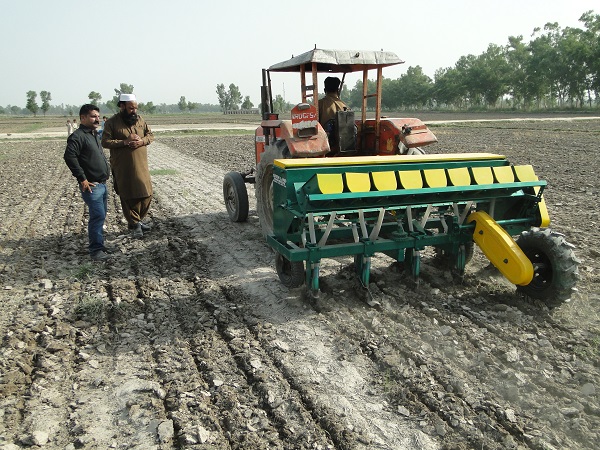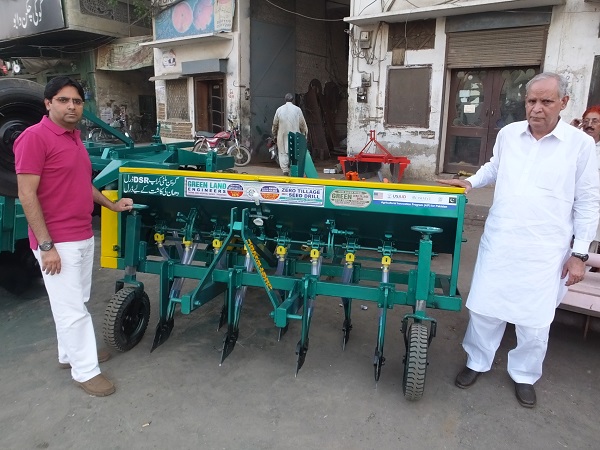
ISLAMABAD — A new planter that promotes dry seeding of rice, saves water and increases planting efficiency is being used increasingly in Pakistan’s Punjab Province.
Many farmers in Punjab alternately grow rice and wheat in their fields throughout the year, and the province produces more than 50% of Pakistan’s rice and 75% of its wheat.
Traditionally, rice planting involves transplanting 4-6-week old seedlings into puddled fields, a process that requires large amounts of water and labor, both of which are becoming increasingly scarce and expensive. Repeated puddling negatively affects soil physical properties, decreases soil aggregation and results in hardpan formation, which reduces the productivity of the following wheat crop.
Sustainable intensification aims to increase the productivity of labor, land and capital. Conservation agriculture (CA) relies on practices such as minimal soil disturbance, permanent soil cover and the use of crop rotation to maintain and/or boost yields, increase profits and protect the environment. It also helps improve soil function and quality, which can improve resilience to climate variability.

Dry seeding of rice (DSR), a practice that involves growing rice without puddling the soil, can save up to 25 percent of the water needed for growing the crop and reduces greenhouse gas emissions. However, the old fluted roller drills used for DSR do not guarantee uniform plant-to-plant spacing and break the rice seeds, requiring farmers to purchase more seed than otherwise needed.
In 2014, the International Maize and Wheat Improvement Center (CIMMYT) imported a multicrop, zero-till planter from India that drills the seed and the fertilizer simultaneously while maintaining appropriate spacing between plants without breaking the seeds.
That same year, CIMMYT evaluated locally modified multicrop zero-till planters for dry seeding of Basmati rice at five sites in Punjab. As a result, the plant populations, tillers and grain yields at these sites were 10 percent higher compared to those at the sites where old fluted roller drills were used. During the current 2016 rice season, Greenland Engineering has so far manufactured and sold over 30 multicrop planters to rice growers across Pakistan.
CIMMYT’s initiative to spread the locally adapted, multicrop, zero-till planter throughout Pakistan was made possible through the Agricultural Innovation Program supported by the United States Agency for International Development, in collaboration with Greenland Engineering and Engro Fertilizers. National partners such as the Rice Research Institute Kala Shah Kaku, Adaptive Research Punjab and Engro Fertilizers are also helping to scale out the multicrop planter and other CA technologies throughout Punjab’s rice-wheat areas.
CIMMYT’s initiative to spread the locally adapted, multicrop, zero-till planter throughout Pakistan was made possible through the Agricultural Innovation Program, supported by the United States Agency for International Development, in collaboration with Greenland Engineering and Engro Fertilizers. National partners like the Rice Research Institute Kala Shah Kaku, Adaptive Research Punjab and Engro Fertilizers are also helping to spread the multicrop planter and other CA technologies throughout rice-wheat areas in Punjab.

 Capacity development
Capacity development 
